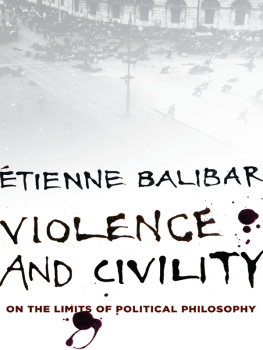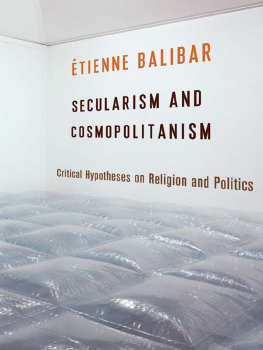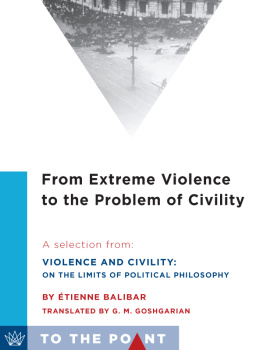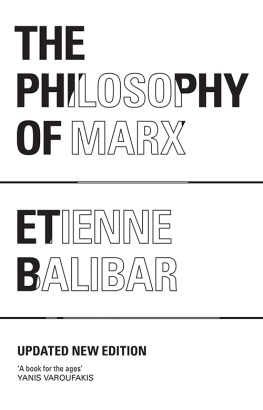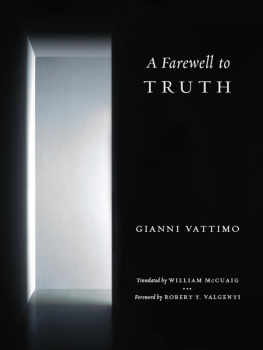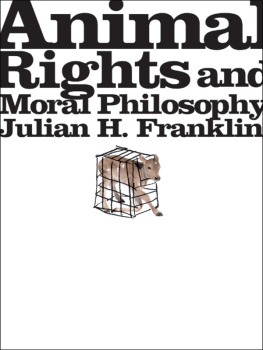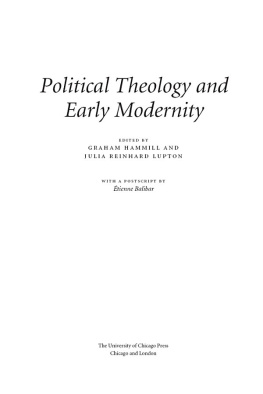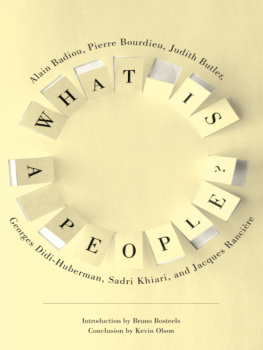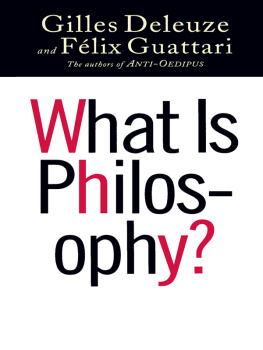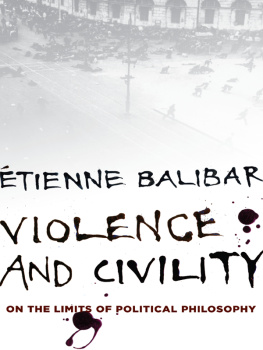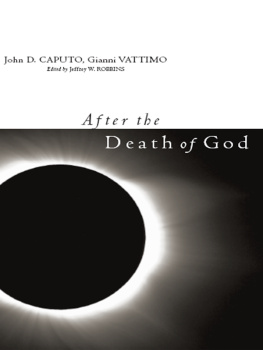VIOLENCE
AND CIVILITY
THE WELLEK LIBRARY LECTURES
The Wellek Library Lectures in Critical Theory are given annually at the University of California, Irvine, under the auspices of the Critical Theory Institute.
The following lectures were given in 1996.
THE CRITICAL THEORY INSTITUTE
GABRIELE SCHWAB, DIRECTOR
VIOLENCE
AND CIVILITY
On the Limits of Political Philosophy
TIENNE BALIBAR
TRANSLATED BY G. M. GOSHGARIAN
COLUMBIA UNIVERSITY PRESS NEW YORK
COLUMBIA UNIVERSITY PRESS
PUBLISHERS SINCE 1893
NEW YORK CHICHESTER, WEST SUSSEX
Copyright 2015 tienne Balibar
All rights reserved
cup.columbia.edu
E-ISBN 978-0-231-52718-7
Library of Congress Cataloging-in-Publication Data
Balibar, tienne, 1942
[Violence et civilit. English]
Violence and civility : on the limits of political philosophy / tienne Balibar ; trans. by G. M. Goshgarian.
pages cm. (Wellek Library lectures)
Includes bibliographical references and index.
ISBN 978-0-231-15398-0 (cloth : alk. paper)ISBN 978-0-231-52718-7 (ebook)
1. Political violencePhilosophy. 2. War (Philosophy) 3. Philosophy, Marxist. 4. Political sciencePhilosophy. I. Goshgarian, G. M., translator. II. Title.
JC328.6.B3513 2015
303.601dc23
2014029659
A Columbia University Press E-book.
CUP would be pleased to hear about your reading experience with this e-book at .
References to Internet Web sites (URLs) were accurate at the time of writing. Neither the author nor Columbia University Press is responsible for URLs that may have expired or changed since the manuscript was prepared.
CONTENTS
In Memory of Jacques Derrida (19302004)
IN MAY OF 1996, AT THE INVITATION OF THE CRITICAL Theory Institute of the University of California, Irvine (whose director at the time was John Carlos Rowe), I gave their annual series of three public lectures: the prestigious Wellek Library Lectures. The title had been announced as On Politics and History: The Issue of Extreme Violence and the Problem of Civility. This was a great honor and an extraordinary experience for me, given the quality and responsiveness of the audience. It had always been the tradition of the Welleks that the full text of the lectures, sometimes in a revised and expanded version, be quickly available as a volume published by Columbia University Press. So, over a long period of time, with her characteristic combination of authority and graciousness, Jennifer Crewe, the editor of the series, kept asking when I would deliver the final version, which they were ready to print immediately. It never came, in spite of her insistence; the warm encouragement that I received from my friends and colleagues at UCI, where I had been coopted in the meantime; and my own increasing feeling of guilt. I will not bother the reader with explanations or justifications: suffice it to say thatapart from obvious problems of style and correctness due to my very imperfect acquaintance with written English, that any good assistant could have helped me to deal with (and one, who was very competent, was offered by the Critical Theory Institute: Erin Ferris), I was blocked by the fact that I perceived the lectures as lacking a clear conclusion, which I spent years looking for in various directions, none of which proved satisfactory.
But there was also the fact that, during those years, I had embarked on other investigations and discussions. They focused mainly on two related issues: (1) In which form, after the crisis of the welfare state in developed capitalist countries (which, for various reasons, I prefer to label the national-social state), could a renewed notion of the citizen be vindicated and problematized? (2) How to trace a genealogy of the two antithetic movements that (such is my hypothesis) keep inhabiting the contradictions of the political in the wake of the great civic-bourgeois revolutions of the eighteenth and nineteenth centuries: a becoming citizen of the subject (qua counterpart of the sovereign) and a becoming subject (in the moral, juridical, social sense) of the citizen?
This could not but take me back to the issue that I had tried to deal with in my Wellek Lectures: extreme violence (or cruelty) and civility (or antiviolence), which is just a way of articulating in other terms the fragile nexus of politics and the unpolitical, or asserting that politics must always become conceptualized (according to the shifting conditions of history: since global governance in the era of neo-liberalism is not fascism ) from the point of view of the unpolitical, i.e., taking into account the fact that its conditions of possibility (Law, the State, the economy, the collective ideologies) are also, in a volatile manner, conditions of impossibility (this time a formula of Derridian descent). I would be led, in a sense, to relativize the formal thesis that I had proposed in my lectures from 1996: that civility or anti-violence (with its multiple strategies) forms as such a politics of politics (or a meta-politics in charge of creating the conditions for the institution of the political, including this very special form of institution which is a revolution), because (as I had also argued in another essay) the politics of politics is to be identified not so much with one modality (or one concept) of historical action as with a varying combination of several modalities: emancipation, transformation, and civility. But for the very same reason, I would be liberated from the obsession of reaching a conclusion for my quest of the strategies of civility (or a conclusion that would not be the continuous elaboration of the problem itself). I would become more clearly aware of the fact that our quest, both theoretical and practical, is a quest for unprecedented forms of civility, combined with inventions of (postnational, postcolonial, postcapitalist, postdisciplinary, postpatriarchic) citizenship, which also by definition means experimenting with other modes of subjectivation.
In 2010 I handed over to Jennifer Crewe a thick volume in French, which by then had the title Violence et Civilit. Wellek Library Lectures et autres essais de philosophie politique, which had just been published by Editions Galile in Paris, and I asked her (and Columbia University Press) if they would still be interested, after so much time, to have it translated into English to appear in their series. I am immensely grateful to the Press, and to Jennifer personally, for enthusiastically receiving my proposal and working efficiently and intelligently to devise the best solutions and format for an American edition. I may say that I have the feeling that the book is now coming home, something important for me and for those who initially ordered itbut it is coming home as the enfant prodigue in the parable, having benefited from the delay and above all the tribulations involved in translating it into another language.
As the reader will discover, the book is composed of three parts. The core development is a translation of the three chapters (Hegel, Hobbes, and the Conversion of Violence, Inconvertible Violence? An Essay in Topography, and Strategies of Civility) in which I have adapted, rectified, expanded, and to some extent updated the 1996 Lectures, of which I retain, however, the matter and the essential line of argument. I conceive of this composition in three steps as a reflexive argument that constructs itself over time. And since it is meant to communicate the idea of a simple beginning (for others or perhaps myself to build upon), I see no reason to erase indications of origin and iterationmuch the contrary.

